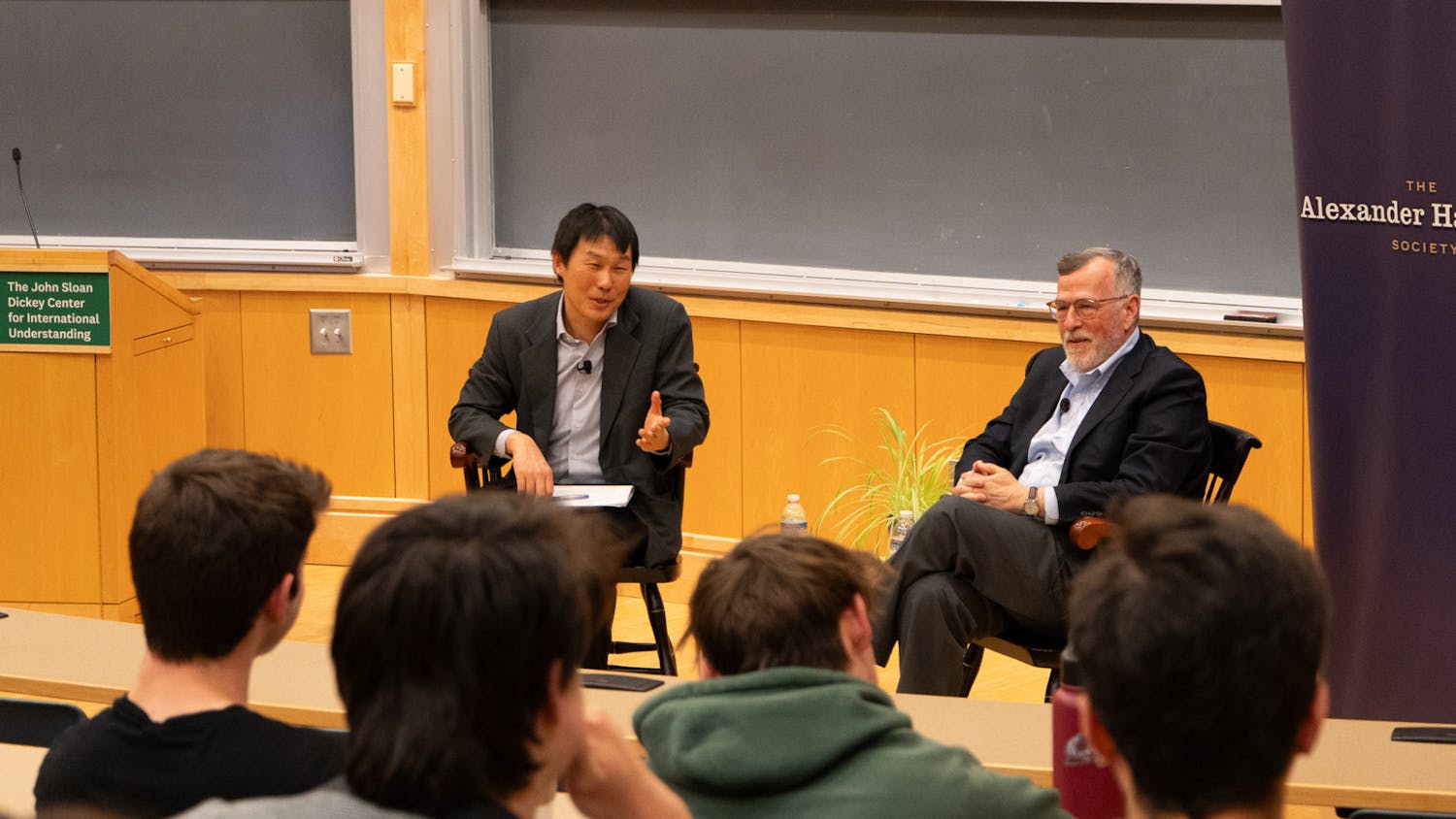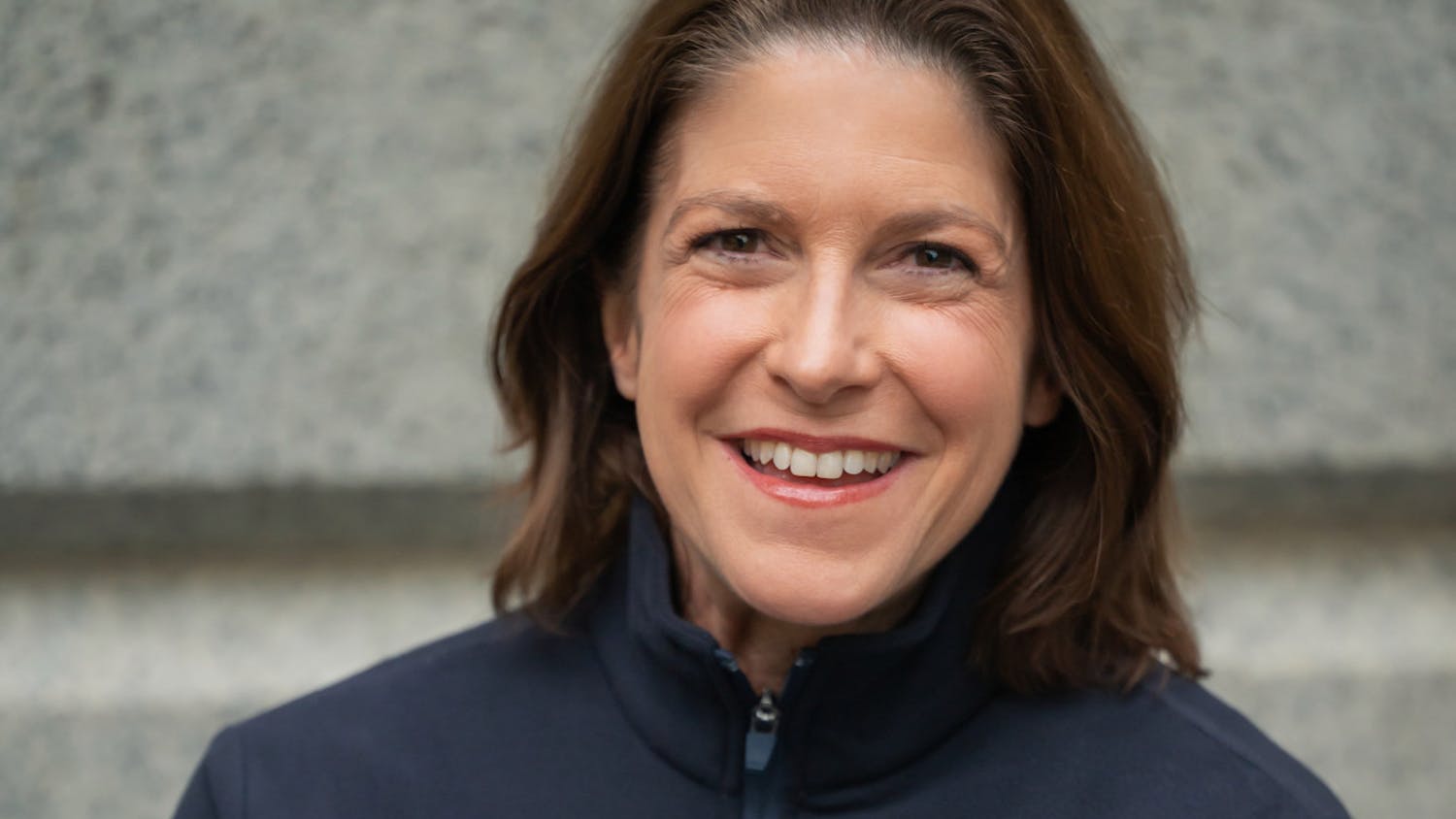In 2006, Doug Fraser, senior research engineer and laboratory instructor at the Thayer School of Engineering, was inspired by an unlikely object — his 2001 Toyota Prius. At the time, Dartmouth participated in the Formula SAE competition, in which students race cars built with motorcycle engines. Fraser believed challenging students to create hybrid cars would be a better educational and multidisciplinary experience.
The result was Fraser’s brainchild — the Formula Hybrid Competition. Recently, the Formula Hybrid Competition was granted the Accreditation Board for Engineering and Technology, Inc. Innovation Award, acknowledging the competions’s excellence in educating budding engineers. It will receive the award on Nov. 2 at the ABET Awards Gala in Baltimore, MD.
According to its website, ABET “recognizes vision and commitment that challenge the status-quo in technical education.”
“Formula Hybrid stood out for fostering collaboration across disciplines, from computer science to electrical and mechanical engineering, and for encouraging engineering students to create innovative approaches to sustainable design,” ABET CEO Michael Milligan wrote in an email statement.
Winning the ABET Innovation Award signifies that the Formula Hybrid Competition has arrived at its most polished state, Fraser said.
Since its conception 12 years ago, the Formula Hybrid Competition has matured into an international event, drawing around 30 teams from around the globe to the New Hampshire Motor Speedway every spring, according to Alex Newman ’19, who served as the team’s mechanical lead in its 2017-18 season.
Fraser added that he believes there is no need for major adjustments to the competition any time soon.
“I don’t see much on the horizon at this point,” he said. “It’s working.”
Formula Hybrid allows engineering students in different fields to collaborate on a project together, according to Fraser.
“Mechanical engineering students and electrical engineering students don’t communicate well,” he said. “I joke that they’re different species. I should say that because I’m both.”
Dartmouth Formula Racing team advisor Raina White said that students benefit from the pressure of bridging gaps between academic specialties.
“Coursework is usually divided into little segments,” White said. “But in industry, especially for complex systems like vehicles and aerospace where you have a lot of mechanical systems and a lot of electrical systems integrated, a project like this is a really good window into what a typical working environment is like. [You need] to balance the needs of the electrical systems and the mechanical systems and to integrate it all together.”
The Formula Hybrid Competition also emphasizes organization and delegation skills. According to Fraser, teams are required to submit detailed interim reports halfway through the year and deliver a project management presentation during the static portion of the competition.
Newman said the administrative side of the competition has taught him about the importance of teamwork.
“Even outside of engineering and the automotive industry, it’s been a good experience,” Newman said. “Being able to work on a team, making deadlines and being able to manage things effectively are universal skills. It’s good for anyone, but for the automotive industry it’s a good way to get in.”
Newman, who studies mechanical engineering, said he has benefited from the Formula Hybrid Competition in several ways, such as providing networking opportunities with industry professionals.
“I think Dartmouth Formula Racing has been an incredible club for me to learn and grow in,” Newman said. “I’d say at least half of the things I know about engineering come from this. I did two internships at Tesla in [its] vehicle engineering department in chassis engineering and [Dartmouth Formula Racing] was directly applicable to everything I was doing there. Everyone on my team, all the full-time engineers, had done some kind of formula competition in school.”
According to White, the Formula Hybrid Competition has elevated the educational experiences of many students.
“I think student design projects are how engineers really learn how to be engineers,” White said. “It’s where they take all the coursework they’ve been learning and see that it has an application. I wish every engineering student at Dartmouth was in some type of project design team.”



